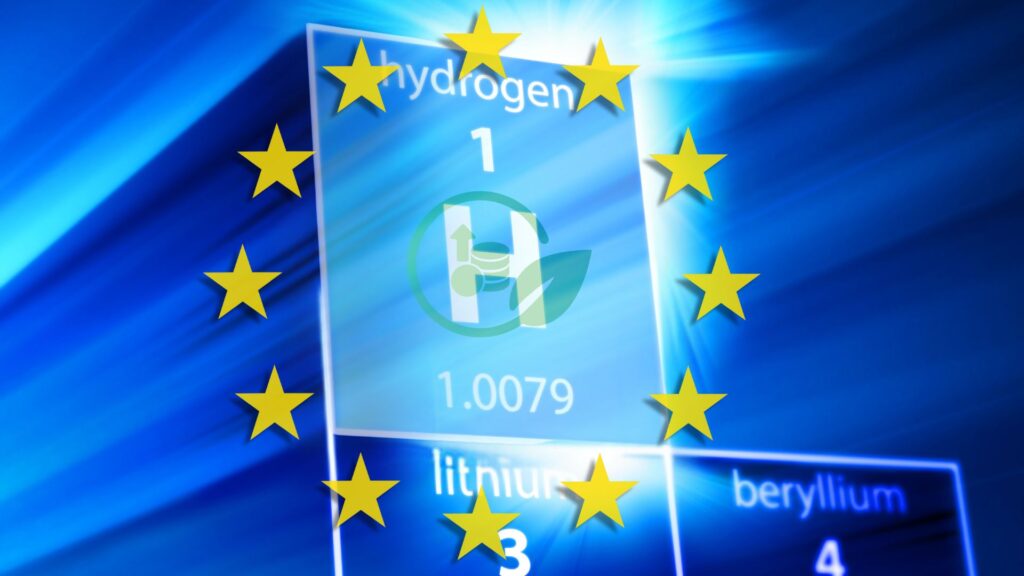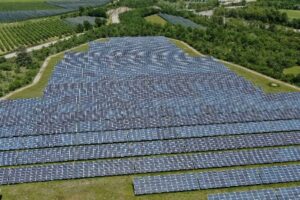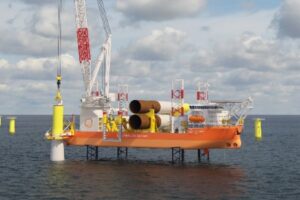Could AdvancedH2Valley Be The Spark For Europe’s Hydrogen Economy? – Hydrogen Fuel News

The Loire Valley in Western France is taking significant strides in renewable hydrogen innovation with the AdvancedH2Valley project. Coordinated by French hydrogen producer Lhyfe, the project unites an 18-member consortium aiming to transform the region into a leader in clean energy initiatives. With an overall budget of €64,350,099, including €8,998,617 in EU funding through the Clean Hydrogen Joint Undertaking (14% of the total budget), AdvancedH2Valley builds on prior successes such as H2Ouest and VHyGO (Vallée Hydrogène Grand Ouest). This initiative not only aims to advance regional decarbonization but also establishes a scalable model for renewable hydrogen deployment.
Pioneering Technological Advancements
AdvancedH2Valley embraces state-of-the-art technologies to resolve the current challenges of scaling renewable hydrogen production and use. Here are its key advancements:
-
Boosted Hydrogen Production
- Construction of 11.5 MW of renewable hydrogen production capacity, in addition to the already operational 1 MW site.
- Projected annual output of over 1,600 tons of certified renewable hydrogen by 2028, aligned with EU Renewable Energy Directive standards.
-
Strategic Infrastructure Development
- Introduction of two new hydrogen refueling stations (HRS), capable of distributing up to 1.3 tons of hydrogen daily.
- Integration of these HRS into the Trans-European Transport Network (RTE-T), enhancing accessibility for heavy-duty transport.
-
Innovative Applications in Transport
- Deployment of France’s first fleet of hydrogen-powered long-haul trucks to reduce emissions in logistics.
- Trialing hydrogen-powered port logistics vehicles and river ferries, demonstrating hydrogen’s role in maritime operations.
-
Custom Solutions for Industry
- Provision of renewable hydrogen designed to meet the specific needs of smaller industrial users, bridging the gap for businesses seeking decarbonization solutions.
-
Operational Efficiency Improvements
- Enhancements in multi-site coordination systems and hydrogen truck filling optimization, driving both economic and environmental efficiency.
These advancements provide a robust template for integrating renewable hydrogen technology into transport, industrial, and maritime ecosystems.
Why This Project is Critical
AdvancedH2Valley addresses some of the most urgent challenges facing global energy and environmental systems. Its importance lies in the following areas:
-
Combatting Carbon Emissions
- The project is projected to avoid 14.6 tons of CO2 emissions during its first two years of operation.
- By 2036, these annual emissions reductions could exceed 2.8 million tons, a significant contribution to global decarbonization efforts.
-
Setting a Scalable Example
- Serving as an “innovation lab,” AdvancedH2Valley provides practical, scalable solutions for hydrogen adoption in diverse contexts.
- Successes and insights achieved through the project will be shared with neighboring Atlantic coastal regions to accelerate replication and knowledge transfer.
-
Promoting Collaboration
- The 18-member consortium unites regional expertise alongside European Commission involvement, showcasing how partnerships drive innovation in the clean energy transition.
Through these coordinated efforts, AdvancedH2Valley demonstrates that renewable hydrogen is an accessible, viable part of the clean energy roadmap—one that can deliver measurable results at regional and global levels.
Similar Projects Catalyzing the Hydrogen Economy
Across Europe, other hydrogen valley initiatives are joining AdvancedH2Valley in advancing clean energy innovation:
-
Northern Netherlands Hydrogen Valley
- Europe’s first fully-fledged hydrogen economy integrates renewable hydrogen into its heavy industries through offshore wind, hydrogen production, and storage solutions.
-
H2EnergyRenewal, Spain
- This initiative helps decarbonize industrial manufacturing processes by utilizing efficient hydrogen fuel cells and electrolyzers.
-
HyNet, United Kingdom
- Aims to create a low-carbon hydrogen network in North West England and North Wales, connecting hydrogen solutions to homes, factories, and transport systems.
These projects, while addressing unique regional needs, reflect a shared commitment to reducing reliance on fossil fuels and achieving sustainable energy goals.
Applying Hydrogen Innovations to Current Needs
The potential of projects like AdvancedH2Valley isn’t confined to the future—it’s tangible today. Hydrogen offers immediate opportunities to decarbonize industries and transportation systems where battery-electric solutions are less feasible. For example, heavy-duty transport, including trucks and trains, can transition to hydrogen power, significantly cutting emissions without compromising on performance. Similarly, industrial sectors like steel and chemicals can adopt hydrogen energy to reduce their environmental impact.
The innovations emerging from this initiative—such as optimized distribution systems and flexible hydrogen supply chains—hold immense potential for replication in other regions. These advancements can also benefit remote or disadvantaged areas where traditional fuel infrastructure fails to keep pace with environmental demands.
By actively implementing and scaling these technologies, AdvancedH2Valley shows that hydrogen isn’t just an energy source of tomorrow but a solution ready to meet today’s energy challenges. Projects like this underline the importance of cooperation, knowledge sharing, and targeted investments in creating a sustainable, low-carbon global economy.









